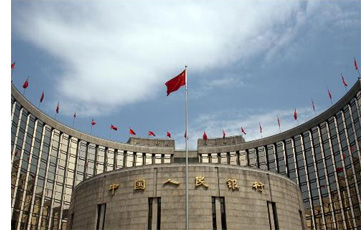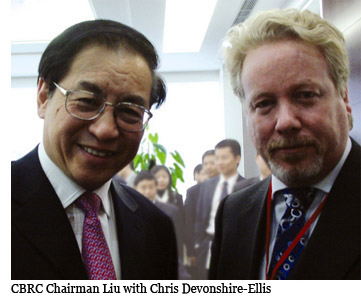China’s inflation shows some signs of slowing
 PBOC and CBRC both “optimistic” inflation is being curbed
PBOC and CBRC both “optimistic” inflation is being curbed
BEIJING, April 15 – The Peoples Bank of China (PBOC) has claimed some initial success in cooling the economy with slowdowns occurring for the first time in recent months in new money supply and bank loans. With inflation at a 12 year high, chairman of the China Banking Regulatory Commission, Liu Mingkang, has stated that the current growth in loans was acceptable and that he was optimistic that China would be able to turn around the galloping inflation rate.
Credit development had dropped by close to one full percentage point from 17.1 to 16.2 during March compared to that of 2007. However, mainland banks had lent an unprecedented RMB804 billion during January this year, a record high, spurred both by the traditional Chinese New Year celebrations, the rise in edible staple foods such as grains, and the severe weather, with many farmers needing bailing out of trouble from ruined feeds and crops.
 The PBOC – which acts as China’s central bank – has warned of tougher measures concerning credit growth, especially since the RMB broke a psychological barrier of trading at less than 7 to the US dollar last week. The issue is of fundamental concern to China in terms of potential civil unrest issues as the price of basic commodities has doubled and tripled in some grains and edible oils, affecting the ability of people in China’s less wealthy rural areas to eat. Liu mentioned (as was echoed in our meetings with P. Chidambaram, the Indian minister of finance last month) that as China has become more wealthy people now can afford to eat more, and that the demand has pushed prices higher.
The PBOC – which acts as China’s central bank – has warned of tougher measures concerning credit growth, especially since the RMB broke a psychological barrier of trading at less than 7 to the US dollar last week. The issue is of fundamental concern to China in terms of potential civil unrest issues as the price of basic commodities has doubled and tripled in some grains and edible oils, affecting the ability of people in China’s less wealthy rural areas to eat. Liu mentioned (as was echoed in our meetings with P. Chidambaram, the Indian minister of finance last month) that as China has become more wealthy people now can afford to eat more, and that the demand has pushed prices higher.
Price fixing may yet be another card the Central government could chose to play in absorbing rising commodities prices Liu said.
Meanwhile, the Bank of China stated its foreign reserves had risen by US$1.6 trillion at the end of March, with total currency holdings growing from 40 percent in 2007. These rising reserves come about partly because China’s assets are quoted in dollars, and a falling US dollar helps increase reserves. But in doing so, they also add pressure on Beijing as regards its inflationary problems.
- Previous Article China’s largest wine importer freed from custody over customs discrepancies
- Next Article China’s first quarter GDP up by 10.6 percent









